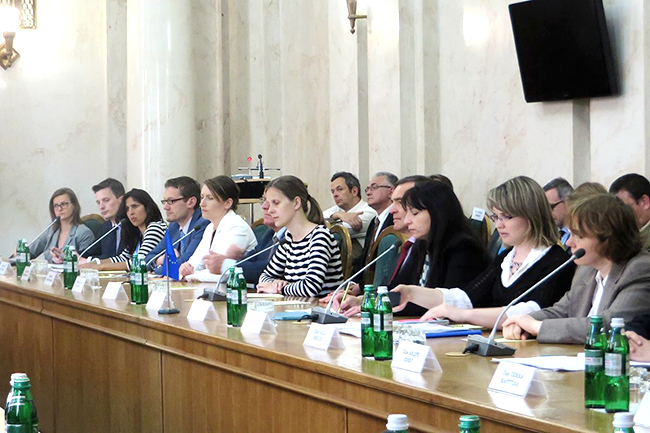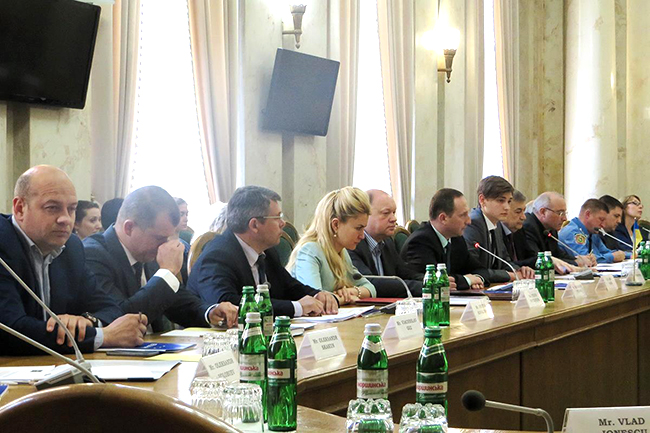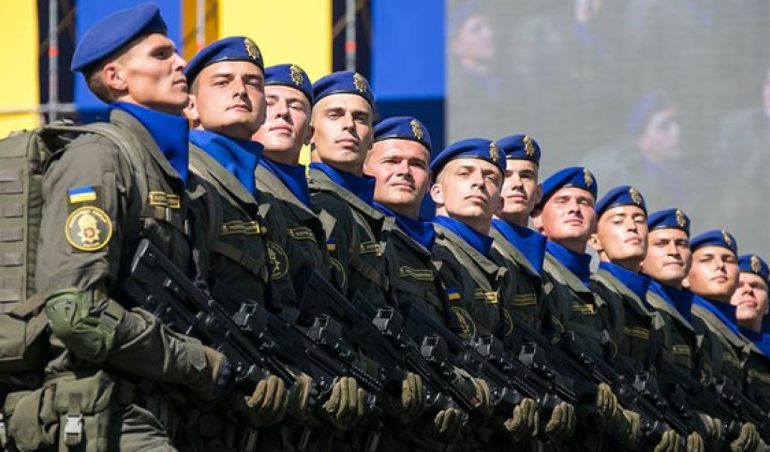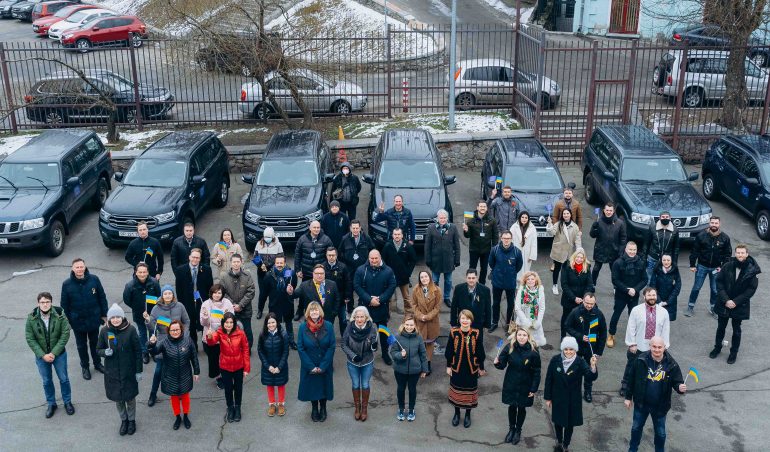CivCom visit to EUAM Ukraine: The Kharkiv Experience
May 22, 2015
“We are trustful partners”, says Igor Rainin Head of the Kharkiv State Oblast Administration. Kharkiv oblast shares 600 km of borders with Russia. With a population of three million, it is one of the bigger Ukrainian territorial entities. Partly due to the neighbourhood to the conflict zone Kharkiv is doubtlessly the region that hosts the highest number of internally displaced persons (IDPs). 170.000 of them are officially registered, but their real number could come close to 300.000.
The proximity of the conflict and the high number of IDPs affects the socio-economic situation.
The governor describes however the situation as stable and even good. Thanks to the positive impact of the first decentralisation efforts, his administration managed to increase its budget resources by 300 million of Hryvna. The supplementary resources flow back into the healthcare system and the education.
Igor Rainin expresses has a position on the reform process in the middle of the major conflict scenario:
“I have never seen an economic reform implementation while a war is on, but President Poroshenko made very clear that it is not an excuse.”
The representative of the Security Service of Ukraine confirmed the governor’s statement that the security situation is stable. The security authorities managed, right from the beginning in February 2014, to push back all attempts to undermine. Lately the SSU could identify 15 subversive organisations and arrest their leaders.
On the Police side, the Kharkiv Police project is under preparation. 800 newly trained police officers will be deployed by the end of the year. The recruitment process has started and closes on 28 May.
Finally, the Kharkiv Emergency Services informed the CivCom delegates that the European emergency number 112 is operational all over the oblast. The administration deals with traditional emergency issues, but is also tasked with IDP support and involved in the construction of the Kharkiv defence line.
CivCom Chair Jana Kalimonova explained the Committee’s tasks and functions. The Member States delegates are on a four days field trip to gather information on the European Advisory Mission on the one hand. On the other, the aim of the visit is also to hear the Ukrainian counterparts’ view on the reform process as well as their expectations.
CivCom will report to the Political and Security Committee in view of the evaluation of EUAM’s mandate by the end of the year.

Civil Society, a strong reform ally
Before travelling back to Kyiv the CIVCOM delegates also met representatives of Kharkiv civil society and NGO representatives who provided them with civil society insight on the situation with reform process, human rights and law-enforcement in Kharkiv oblast. According to them the situation in the region is not so bright. They have identified a number of things that require attention and improvement as cases of mistreatment and human rights violation by police officers.
“One of our main purposes is to break resistance to reform within the middle-management chain int the state agencies” – said Dmytro Kutovyi from Kharkiv Lustration Chamber underlining the reluctance of state officials in the reform process.

Representatives of other Kharkiv NGOS such as Kharkiv Human Rights Protection Group, Civil Forum Kharkiv and the civil movement “Civil society control is working” also expressed their views and opinions on the situation in the non-governmental sector in Kharkiv region.






